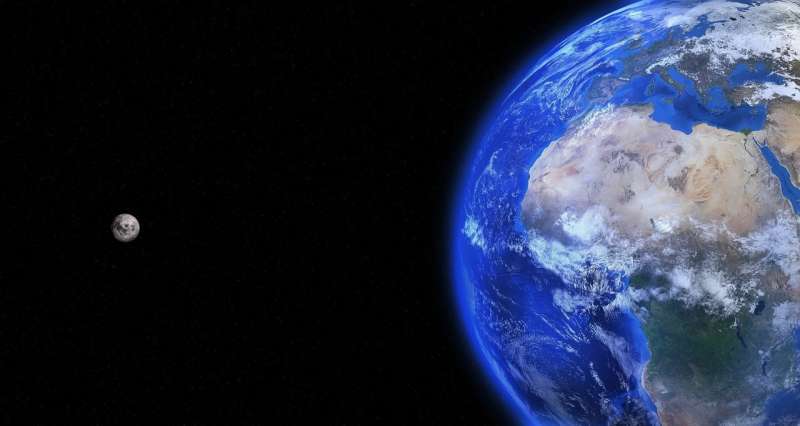Are Elon Musk and SpaceX about to ruin our view of the night sky?

Already, the first 60 of SpaceX's planned 12,000 internet-delivery satellites have appeared as a decidedly unnatural string of lights in the night sky. Scientists worry the company's plan to ring Earth with orbiting "Starlink" devices will wreck our view of the cosmos.
"It changes how the night sky looks," astronomer Ronald Drimmel from the Turin Astrophysical Observatory in Italy said in a new report by Forbes. "Starlink ... would ruin the sky for everyone on the planet."
SpaceX did not immediately respond to a request for comment.
The company, founded in 2002 and owned by its CEO Elon Musk, says Starlink will "connect end users with low-latency, high-bandwidth broadband services by providing continual coverage around the world using a network of thousands of satellites in low Earth orbit."
The priority, according to SpaceX, is "reaching those who are not yet connected" to provide "reliable and affordable broadband internet services."
Dutch astronomer Cees Bassa tweeted Saturday that the visibility of the Starlink satellites will depend on a viewer's latitude. At 52 degrees latitude, for example around Seattle, the orbiting machines each bearing a reflective solar panel will be visible all night during summer, according to Bassa.
"For locations at lower latitudes, the situation is only slightly better," Bassa continued in another tweet. "At 34 degrees latitude, say Los Angeles, up to 10 #Starlink satellites will be visible during twilight. At those latitudes the satellites will be invisible for only 4 hours in typical a summer's night."
The string of lights seen after the initial Starlink launch May 23 will soon no longer be visible, once the satellites drift away from each other during orbit, according to a report Monday in Gizmodo.
SpaceX is best known for its rocket program that Musk claims will ultimately deliver humans to Mars, and which was used to launch a Tesla "Roadster" into orbit.
But astronomers told Forbes they worry the firm's Starlink satellites will interfere with gathering of imagery. On Sunday, Musk addressed that concern, tweeting that SpaceX would "make sure Starlink has no material effect on discoveries in astronomy."
Musk, responding to a tweet asking if later batches of launched Starlink satellites could reflect less light downward, also tweeted Sunday that he had sent a note to the Starlink team the previous week, asking about reducing the reflectivity. He claimed in another tweet that the satellites "won't be seen by anyone unless looking very carefully."
"Potentially helping billions of economically disadvantaged people is the greater good," Musk continued.
But thousands of internet-beaming satellites also pose a risk to other satellites in orbit, according to a report earlier this month in Scientific American. "Although they promise to revolutionize global telecommunications, these efforts are not free of peril: As the number of satellites inexorably grows, so, too, does the risk of creating dangerous debris that could threaten the continued safe use of Earth orbit," the magazine reported, noting that the planet is currently spinning amid 2,000 active satellites.
"A worst-case scenario would be the Kessler syndrome, a positive feedback loop in which debris-generating collisions create more and more collisions, which in turn create more and more debris, rendering parts of Earth orbit essentially unusable."
SpaceX in April modified its agreement with the Federal Communications Commission, saying it would lower by half the planned altitudes of more than 1,500 of its satellites, but that would mean they stay in orbit longer, according to the magazine.
©2019 The Mercury News (San Jose, Calif.)
Distributed by Tribune Content Agency, LLC.




















